

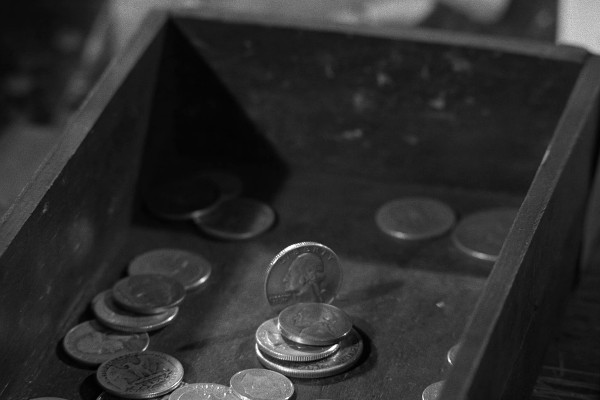
George Clayton Johnson's hit rate with the series was phenomenal, with four stories and not a dud amongst them. A Penny For Your Thoughts sees Dick York as a man who develops telepathy when a flipped coin lands on its edge, the phenomena echoing the million-to-one chance.
Often with stories where a character acquires a gift of supernature it's frustrating that they don't use it to wider effect, even if restrained by the 23 minute runtime, such as The Mind and the Matter. However, York's character is so well-meaning that he puts his newfound ability to positive use. What also helps is that Johnson populates his script with great variations on the comic archetypes: while boss Mr. Bagby is the dominant ogre, he's not without sympathetic edges, and doesn't seek to railroad York throughout. Another interesting twist is the elderly bank worker who plans to use his anonymity to rob the place, only to later reveal that it's just a fantasy he toys with. While Johnson isn't above a blonde joke, he even has York railing against sexism, and the innocent lead's turn to blackmail at the end adds another layer to events.
As a kid, waiting for repeats of the Twilight Zone on selected UK screenings, I saw just a fraction of the series and had no idea that the series played with comedy so regularly. The likes of Cavender is Coming or Mr. Dingle, The Strong never seemed to get airtime, leaving the England-based viewer in blissful ignorance of their existence. A Penny For Your Thoughts is one of the few comedic episodes that did get aired, but it's more quirky, light and offbeat than outright silly. In fact, it's always a joy to watch.
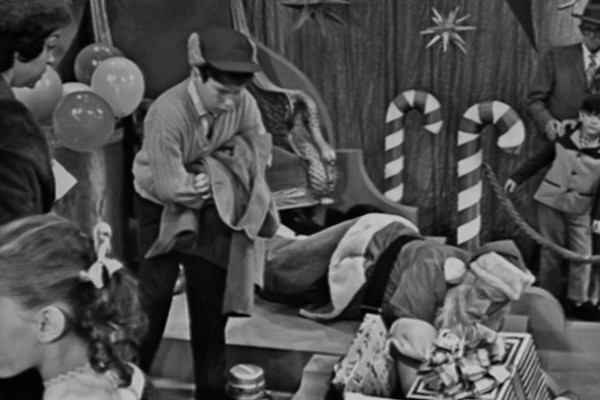
Art Carney is superb as a drunken Santa having an existential crisis and uttering lines like "I find of late that I have very little choice in the matter of expressing emotions. I can either drink... or I can weep. And drinking is so much more subtle." The episode was remade for the 80s revival in a so-so new version with Richard Mulligan. The material was toned down there, and, while Mulligan's "drunkenness" may have seemed more theatrical, he didn't have the advantages Carney had, which is that Carney did have issues with alcoholism and is possibly a bit of a method actor in this regard. Mulligan would shout his lines, whereas Carney mangles his, the slurred words of someone who truly knew the bottom of a bottle.
One rare way in which the 80s version could compete is that this is another of the six videotaped episodes. Even on Blu-Ray it looks absolutely awful, like a muddy live broadcast, some of the images almost ghost-like. It's a shame because it's an episode with effort put into it, a studio recreation of a small town, complete with snow, and could have benefitted from the usual high production. This said, the immediacy of video tape does lend a certain something to this Christmas tale, and out of all of the six, it's the one that best suits the format.
The Night of the Meek was never a personal favourite of mine, thinking it was maybe a little too schmaltzy even for the occasionally saccharine Twilight Zone, yet it gets better with each viewing, and the darkness at its heart even more compelling. Carney may end the episode with redemption, but he begins it as a broken man, and that inner pain is what makes an essentially light-hearted episode so rewarding; Serling and comedy were always an uneasy mix, but adding a darker side to his humour works, it pays off. Plus, this is the one time you'll get to hear the immortal line "Santa's a lush."
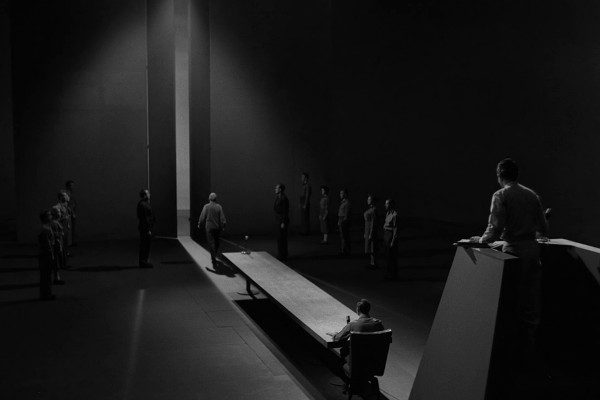
With The Obsolete Man, Serling's magnificent season closer, we're reminded of what we've been missing for much of season two. The avant-garde direction is part musical theatre, part German expressionism, while the literary script echoes everything from Kafka to Orwell. Burgess Meredith stars, and the gulf in quality between this and Mr. Dingle, The Strong is sorely felt.
There are some quaint moments from time to time in Serling scripts where the authorial voice will accidentally seep through. Some verbose supporting characters may stray near to one of his introductions, or, as here, a character finds himself saying one of Rod's most famous catchphrases, "case in point..." And, as probably the most wordy Twilight Zone episode ever screened, there is some irony in the member of the totalitarian state (Fritz Weaver) using all kinds of lengthy, pontificating dialogue to argue that words are meaningless... but then maybe that's the point. Very reminiscent of The Prisoner over six years before it aired, this is an instalment where Serling once more raises his game rather than attempting to lower it.
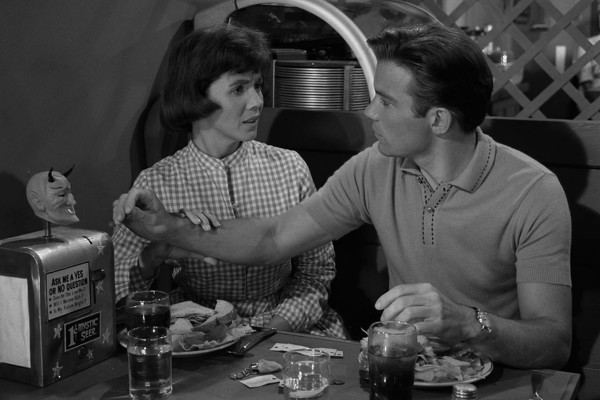
William Shatner and Patricia Breslin star as a young Honeymooning couple caught up in superstition in this well-known Richard Matheson classic. When a series of coincidences appear to predict the future, the couple cannot escape a cycle of dependency...
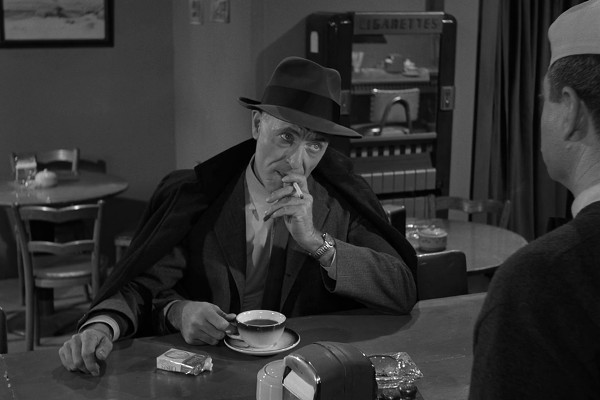
Serling's eleventh full comedy for the series, and, while his batting average is well under par for the genre, he finally gets it right here. What helps is that not only is most of it peppered with light wit rather than broad silliness, but that the plot is absolutely water-tight. When an object crashes over the night sky, a motorway café finds itself filled with the occupants of a six-passenger bus... only there are seven of them. The passengers argue among themselves as to who among them is the alien, while a police investigation fails to narrow down the suspects.
Serling was forced to act almost as a shill for sponsor Oasis cigarettes during season two, with four of his "next week..." post-story spots featuring plugs for the brand, an awful sight not just for the attack on his professional integrity, but for the knowledge that he was a prolific smoker and died of a heart attack aged just fifty. This advertising actually makes its way into the episode proper, with a three-armed Martian extolling the virtues of his packet of Oasis. However, what gives this classic episode a first-rate sign-off is the darker subtext of his upcoming death, with a three-eyed Venusian giving him a barely concealed threat of "if you're still alive..." What is a light-hearted, thoroughly likeable tale suddenly becomes like something out of The Long Good Friday...
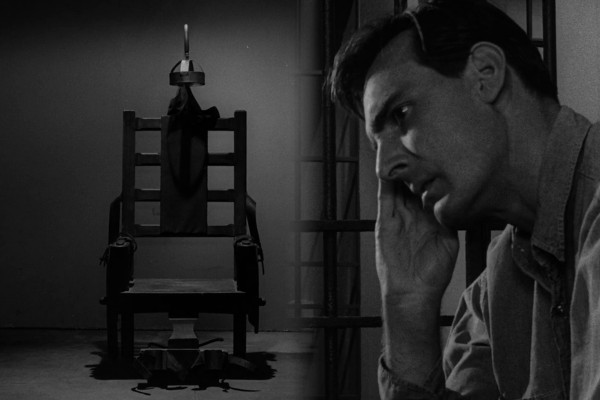
There are signs that Serling was overworking himself during season two, as his work becomes, as seen via this ranking, far more widely variable than before. It's perhaps to be expected as, when season two closes, Serling's tally is 48 out of 65 episodes, a phenomenal workrate. Charles Beaumont, in contrast, has a much lower stake in the series, crafting just 3-6 scripts per season, allowing him to be a lot more consistent. While his work in season one didn't really rate that highly, his five scripts for season two - The Howling Man, Static, The Prime Mover, a co-written Long Distance Call, and this one - are all of a far superior quality.
Shadow Play is a fantastic recurring nightmare in one man's mind, fairly faithfully remade in the first 1980s revival season. However, while there some form of explanation was given, here no explanation is given for the life of a man who finds himself continually waking up, condemned to death for murder, knowing he'll go through the same events over and over, with only the faces changed... it's deeply unsettling, one of the most brilliant and disturbing areas of the Twilight Zone.